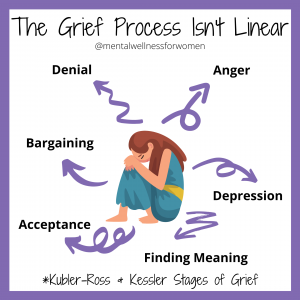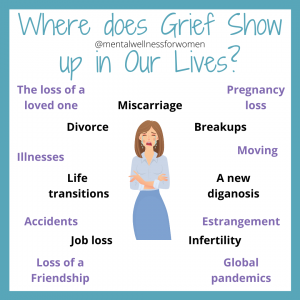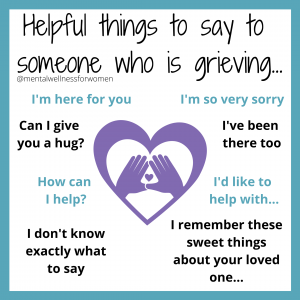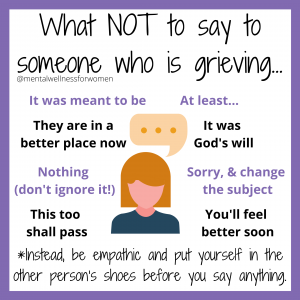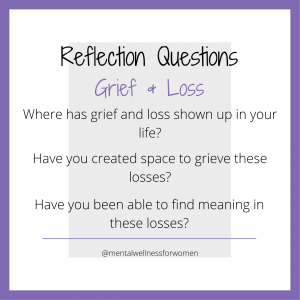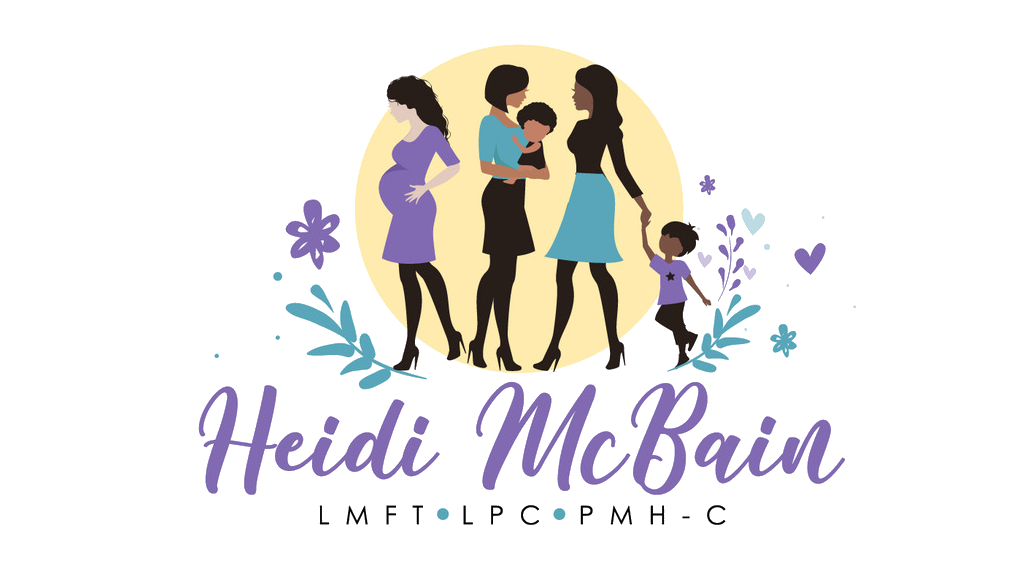
The grief doesn’t end, because the love doesn’t end.
–David Kessler
I recently finished the book “Finding Meaning: The Sixth Stage of Grief” by grief expert David Kessler. It’s a continuation of the five stages of grief, the Kubler-Ross model, which includes denial, anger, bargaining, depression and acceptance. Also, please remember that the grief process isn’t linear for any of us.
Kessler’s book got me thinking about my own grief process. Have I found meaning in my dad’s death? In the late miscarriage? In the other losses I’ve had in my life, both big and small? It’s definitely an area I’ll be thinking about and processing in the days to come.
Where does grief show up in our lives?
- After the loss of a loved one
- Miscarriage/Pregnancy loss
- Divorce/Breakups
- Loss of a friendship
- Moving
- Job loss
- A new diagnosis/illness
- Estrangement from family members
- Infertility
- Accidents
- Global pandemics
- Life transitions
If you are grieving right now, I bet there are some things that would be helpful to hear from others, as well as some things that you don’t need to hear and wouldn’t be helpful to you.
Helpful things to say to someone who is grieving:
- I’m here for you.
- I don’t know exactly what to say.
- I’m so very sorry.
- I’ve been there too.
- How can I help?
- Can I give you a hug?
- I will help out in this way (bring dinner, take care of your kids, send over my cleaning person, etc.).
- I remember these sweet things about your loved one…
Often, external support stops after a short period of time, while the grief stays and continues. Don’t forget to check back in with people in the future!
What NOT to say to someone who is grieving…
- It was meant to be.
- It’s God’s will.
- They are in a better place now.
- At least… (you can get pregnant, you knew him for as long as you did, etc.).
- Nothing- don’t ignore the grief and pretend it’s not there.
- Sorry and then quickly change the subject before the person can respond.
- This too shall pass.
- You’ll feel better soon.
Instead, be empathic and put yourself in the other person’s shoes before you say anything.
Finally, sometimes you may be feeling sad or depressed, but may not be able to figure out exactly why you are feeling this way. In these instances, it may be helpful to ask yourself if you’re actually grieving the loss of something right now. Grief has been showing up more often lately because of the COVID-19 pandemic. It shows up around major losses and life changes, but can also show up around seemingly smaller losses and life changes too. Give yourself time and space to grieve the losses in your life. Remember, grief equals love, and you’re grieving because of this love you feel for others.
